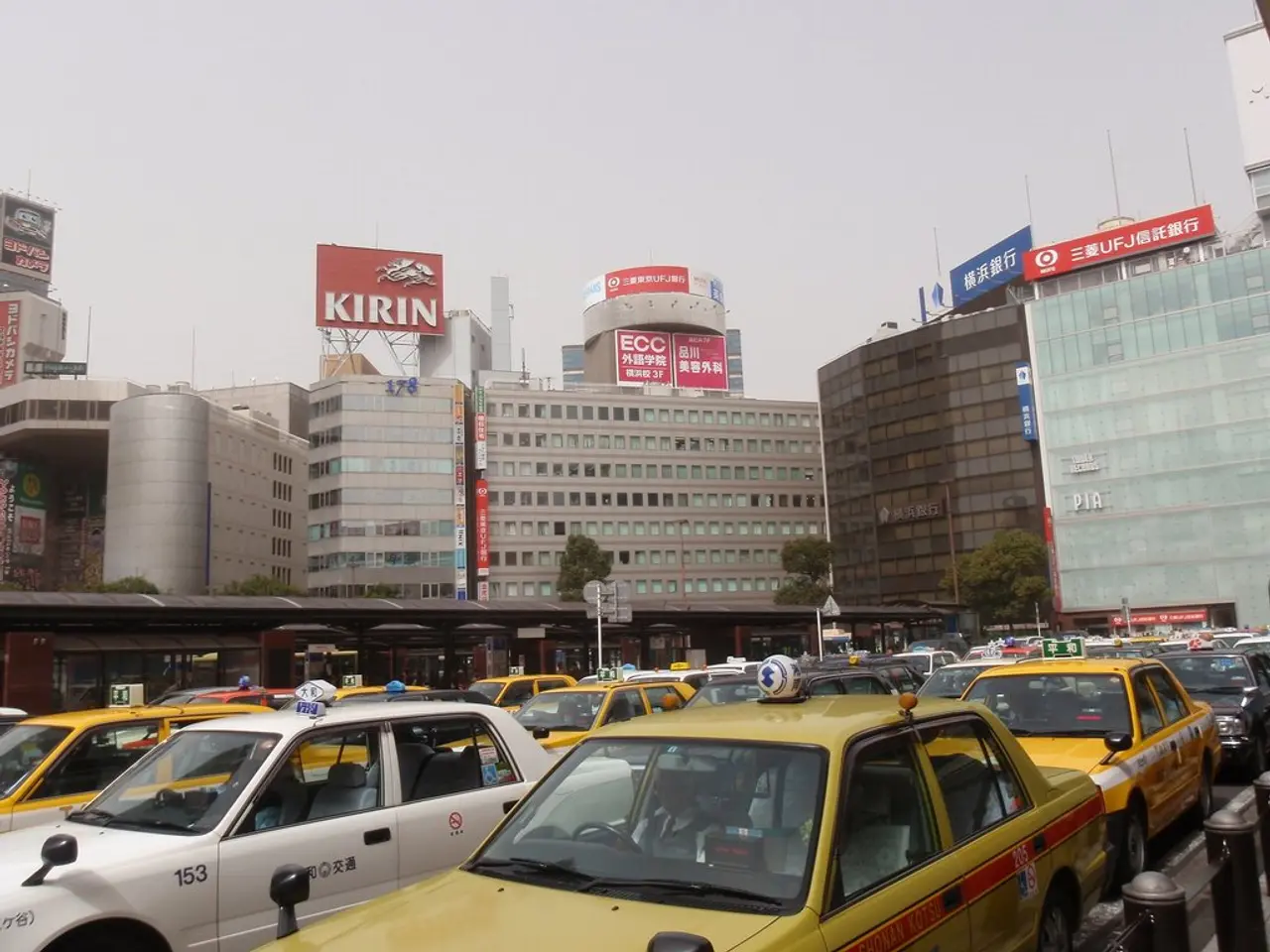Transport infrastructure as seen on our website: A road riddled with potholes
Ireland's National Development Plan: A Focus on Transport Infrastructure
The Irish Government has announced an unprecedented investment of €22 billion for transport infrastructure as part of the National Development Plan (NDP), aiming for transformational improvements that support economic growth, environmental sustainability, and regional development through to 2030 and beyond[1][3].
The transport sector plays a crucial role in Ireland's wider infrastructure challenge, affecting emissions profiles, economic opportunities, and quality of life for decades[4]. However, the NDP does not mention the BusConnects project or upgrades to regional bus and rail networks as priorities[2].
Key Elements of the Transport Infrastructure Investment Plan
- Public Transport Expansion and Upgrades
- The plans for light rail projects in Cork (Cork Luas) and Galway remain a focus, but their rollout and funding allocations appear cautious and slower than desired[2][4]. The BusConnects project, aimed at enhanced bus networks especially in urban centers, has seen a slow rollout, with funding details still pending[2][4].
- Road Infrastructure and Regional Connectivity
- Significant upgrades such as the Cork to Limerick motorway and upgrades to the N24 road for the South-East region feature prominently in the plan to improve safety and connectivity[1]. Completed projects already delivering benefits include the Dunkettle Interchange, New Ross Bypass, and Moycullen Bypass[1].
- Capital and Workforce Scale
- Between 2026 and 2030, an estimated €24 billion is earmarked for extending public transport, roads, electrification, active travel (cycling/walking), and greenways[3]. The plan also anticipates a need for up to 80,000 additional construction workers to meet infrastructure delivery goals[3].
- Regional vs Capital Investment Balance
- Dublin has received substantially higher transport investment compared to Cork so far, by almost €30 billion in the 2021-2030 period[4]. Key strategic projects in Cork—including light rail, BusConnects, N25 upgrades, and a northern distributor road—are recognized as vital but pending clear dedicated funding[4].
- Rail Network Upgrades
- The All-Island Strategic Rail Review emphasizes modal shift away from private car dependency towards public transport, supporting MetroLink in Dublin as the high-capacity spine. However, specific details on rail expansions outside Dublin in the NDP remain limited[5].
The NDP's transport vision is ambitious, but the light rail and BusConnects projects in Cork and Galway need accelerated prioritization and dedicated funding to match the level of demand and regional growth expectations. There is a clear government commitment to improving transport infrastructure across all regions, but regional balance and project delivery timelines remain critical challenges to be addressed[1][2][3][4][5].
Courts in Northern Ireland have shown a willingness to intervene when environmental commitments conflict with road projects, underscoring the importance of adhering to these commitments in infrastructure development[6]. The inclusion of MetroLink, a massive public transport investment for Dublin, in the NDP may mask underinvestment in other vital areas such as light rail proposals for Cork and Galway[7].
The NDP must provide strategic clarity beyond being a series of headline figures and local announcements to ensure that the long-term impacts on Ireland's emissions profiles, economic opportunities, and quality of life are positively addressed[8]. Without firm answers and full transparency, the implementation of the NDP may encounter challenges[9].
Summary:
| Transport Element | Status/Investment | Notes | |---------------------------|-----------------------------------------------------|-------------------------------------------------------------| | Light Rail (Cork, Galway) | Under consultation, no confirmed funding envelope yet | Projects progressing slowly, important for balanced development | | BusConnects (Dublin, Cork) | Slow rollout, Cork project pending specific funding | Bus network upgrades are essential but delayed | | Road Projects | €22B overall for transport; Cork to Limerick motorway, N24 upgrades | Some projects completed (Dunkettle, New Ross, Moycullen) | | Public Transport Expansion | €24B earmarked for 2026-30 including electrification | Focus on modal shift and supporting urban and regional needs | | Regional Investment Disparity | Dublin investment exceeds Cork by ~€30B | Calls for increased funding to Cork to support growth | | Rail Network Upgrades | Focus on Dublin MetroLink as key spine; ongoing calls for regional rail upgrades | All-Island Strategic Rail Review guides future rail investment |
[1] Irish Examiner [2] Transport Infrastructure Ireland [3] Government of Ireland [4] Irish Times [5] Irish Rail [6] BBC News [7] Irish Times [8] Irish Independent [9] Irish Examiner
- The Irish Government's National Development Plan promises considerable investment in environmental-science projects, such as public transit expansion, electrification, and greenways, amounting to an estimated €24 billion from 2026 to 2030.
- The plans for climate-change mitigation in the transport sector, including light rail projects in Cork (Cork Luas) and Galway, as well as the BusConnects project, are long-awaited initiatives that require accelerated prioritization and dedicated funding to match the level of demand and regional growth expectations.
- Despite the allocation of €22 billion for transport infrastructure, the climate-change impact of the industry is still a concern, as the NDP does not mention the BusConnects project or substantial upgrades to regional bus and rail networks as priorities.
- Businesses and investors have an opportunity to contribute to Ireland's sustainable future, as the government expects the need for up to 80,000 additional construction workers to meet infrastructure delivery goals in the transport sector.




